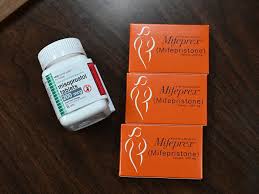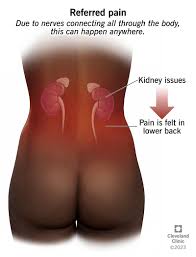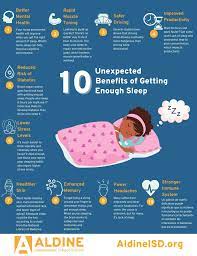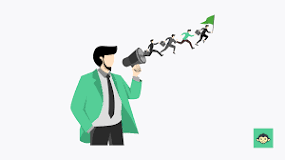Medication: A Powerful Tool in Healthcare
Medication plays a vital role in modern healthcare, providing relief, managing chronic conditions, and even saving lives. From over-the-counter painkillers to complex prescription drugs, medications have revolutionized the way we treat various ailments. Let’s delve into the importance of medication and how it impacts our lives.
First and foremost, medications are designed to alleviate symptoms and provide relief from discomfort. Whether it’s a headache, fever, or common cold, over-the-counter medications offer quick and effective relief. They target specific symptoms to help us feel better and continue with our daily activities.
Beyond temporary relief, medications also play a crucial role in managing chronic conditions. Conditions such as diabetes, hypertension, asthma, and arthritis require ongoing treatment to maintain optimal health. Medications prescribed by healthcare professionals help control these conditions by regulating blood sugar levels, reducing blood pressure, opening airways, or alleviating joint pain.
In addition to symptom management, medications can slow down disease progression. For instance, certain drugs can prevent the growth of cancer cells or delay the advancement of neurodegenerative diseases like Alzheimer’s or Parkinson’s. These medications not only improve patients’ quality of life but also buy them valuable time for further research breakthroughs or alternative treatments.
It is important to note that medications should always be used responsibly and under professional guidance. Healthcare providers play a critical role in prescribing the right medication at the appropriate dosage for each individual patient. They take into account factors such as age, weight, medical history, allergies, and potential drug interactions to ensure safe and effective treatment.
However beneficial medication may be when used correctly; it is essential to be aware of potential side effects. Every drug has the potential for adverse reactions that vary from mild to severe. Common side effects include drowsiness, nausea, or allergic reactions. It is crucial to read medication labels carefully and consult healthcare professionals if any concerns arise.
Moreover, medication adherence is a crucial aspect of successful treatment. It involves taking medications as prescribed, following the recommended dosage and frequency. Skipping doses or discontinuing medication prematurely can lead to inefficacy and potential complications. Maintaining open communication with healthcare providers and discussing any challenges or concerns can help ensure optimal adherence.
In recent years, advancements in medication have led to groundbreaking discoveries and innovative treatments. From targeted therapies for cancer to personalized medicine based on genetic profiling, the field continues to evolve rapidly. Researchers are constantly striving to develop new medications that are more effective, have fewer side effects, and target specific disease mechanisms.
In conclusion, medication is an indispensable tool in healthcare. It brings relief from symptoms, manages chronic conditions, slows down disease progression, and improves overall quality of life. However, responsible use under professional guidance is essential to maximize benefits while minimizing risks. By understanding the importance of medication and working closely with healthcare providers, we can harness its power for optimal health and well-being.
6 Essential Tips for Medication Safety and Proper Usage
- Always read and follow the instructions on the medication label carefully.
- Talk to your doctor or pharmacist if you have any questions about a medication before taking it.
- Take medications at the same time each day to help remember when to take them.
- Store medications in a cool, dry place away from direct sunlight and heat sources such as radiators or stoves.
- Dispose of unused or expired medications properly according to your local laws and regulations, usually by returning them to a pharmacy for safe disposal.
- Never share your medications with anyone else, even if they have the same condition as you do; each person’s medical history is unique and may require different doses of medication for optimal effectiveness.
Always read and follow the instructions on the medication label carefully.
Always Read and Follow Medication Instructions: Your Health Depends on It
When it comes to taking medication, one of the most important tips to remember is to always read and follow the instructions on the medication label carefully. This seemingly simple step can have a significant impact on your health and well-being.
Medication labels contain vital information that ensures safe and effective use. They provide instructions on how to take the medication, including dosage, frequency, and duration. By following these instructions precisely, you can maximize the benefits of the medication while minimizing potential risks.
Reading the label carefully allows you to understand any precautions or warnings associated with the medication. For example, certain medications may need to be taken with food or avoided if you have specific medical conditions or allergies. By being aware of these details, you can prevent adverse reactions and ensure that the medication works as intended.
Moreover, paying attention to storage instructions is crucial for maintaining the potency and safety of your medications. Some medications require refrigeration, while others need protection from light or moisture. Following proper storage guidelines helps preserve their effectiveness and prevents any potential harm due to improper storage conditions.
Additionally, it’s important to note any potential side effects listed on the label. While not everyone experiences side effects, being aware of them can help you recognize any unusual symptoms that may arise after taking the medication. If you have concerns about side effects or notice anything out of the ordinary, it’s always best to consult your healthcare provider.
Remember that medication labels are designed with your safety in mind. They provide essential information that empowers you to make informed decisions about your health. By reading and following these instructions diligently, you take an active role in managing your own well-being.
If you ever have questions or uncertainties regarding your medication, don’t hesitate to reach out to a healthcare professional for clarification. They are there to guide and support you in navigating your treatment plan effectively.
In conclusion, always read and follow the instructions on the medication label carefully. It’s a small but crucial step that can have a significant impact on your health. By doing so, you ensure that you take the medication correctly, understand any precautions or warnings, and are aware of potential side effects. Your health and well-being depend on it.
Talk to your doctor or pharmacist if you have any questions about a medication before taking it.
Talking to Your Healthcare Provider: The Key to Safe Medication Use
When it comes to taking medication, it’s crucial to prioritize your health and well-being. One simple yet vital tip that can make a significant difference is to talk to your doctor or pharmacist if you have any questions or concerns about a medication before taking it.
Healthcare professionals, including doctors and pharmacists, are valuable resources when it comes to understanding medications. They possess the knowledge and expertise necessary to guide you through the benefits, potential side effects, and proper usage of any prescribed or over-the-counter medication.
By engaging in open communication with your healthcare provider, you can gain a better understanding of how the medication works, its intended purpose, and any precautions you should take. This conversation allows you to make informed decisions about your treatment plan and ensures that the medication aligns with your unique medical history, allergies, or other medications you may be taking.
It’s important not to underestimate the significance of this step. Asking questions can help clarify any doubts or misconceptions you may have about a particular medication. It allows you to understand what to expect in terms of potential side effects, interactions with other drugs or supplements, and the appropriate dosage for your specific condition.
Your doctor or pharmacist can also provide essential guidance on how to take the medication correctly. They will explain whether it should be taken with food or on an empty stomach, at specific times of the day, or if there are any lifestyle adjustments required while on the medication. Following their instructions precisely ensures maximum effectiveness while minimizing the risk of adverse effects.
Additionally, discussing your concerns openly can help address any fears or anxieties you may have about starting a new medication. Your healthcare provider can provide reassurance and offer alternatives if necessary. Remember that they are there to support you throughout your treatment journey.
In today’s digital age, it is essential not to rely solely on online sources for information about medications. While online resources can be helpful, they do not replace the knowledge and expertise of a qualified healthcare professional. Your doctor or pharmacist can provide personalized advice based on your specific medical history and needs.
In conclusion, talking to your doctor or pharmacist before taking any medication is a fundamental step towards safe and effective treatment. By engaging in open communication, you can gain a thorough understanding of the medication’s purpose, potential side effects, and proper usage. This empowers you to make informed decisions about your health and ensures that you are receiving the best possible care. Remember, your healthcare provider is there to support you and answer any questions you may have – so don’t hesitate to reach out for guidance when needed.
Take medications at the same time each day to help remember when to take them.
Taking Medications: The Power of Consistency
Remembering to take medications can sometimes be a challenge, especially when juggling various responsibilities and daily routines. However, a simple tip can make a significant difference: taking medications at the same time each day. This small practice can help you stay on track with your medication regimen and ensure optimal effectiveness.
Consistency is key when it comes to medication adherence. By establishing a regular schedule for taking your medications, you create a habit that becomes ingrained in your daily routine. Setting specific times, such as morning, afternoon, or evening, helps you remember when to take each dose.
Taking medications at consistent times also helps optimize their effects on your body. Some medications require consistent blood levels to work effectively. By adhering to a set schedule, you ensure that the medication is absorbed and distributed consistently throughout the day.
To implement this tip effectively, consider incorporating reminders into your routine. You can set alarms or use smartphone apps specifically designed for medication reminders. These gentle nudges will prompt you to take your medications at the designated times.
Another helpful strategy is to link medication intake with other daily activities or events. For example, taking your medication after brushing your teeth in the morning or before bedtime can serve as natural cues for remembering to take them.
If you have multiple medications with different dosing schedules, organizing them using pill organizers can be immensely helpful. These containers have compartments labeled with days of the week and specific times of day, making it easier to keep track of which medications to take and when.
Remember that consistency in taking medications goes hand in hand with open communication with healthcare professionals. If you have any concerns or difficulties adhering to the prescribed schedule, discussing it with your doctor or pharmacist can lead to potential adjustments that better suit your lifestyle and needs.
By making a conscious effort to take medications at the same time each day, you enhance both adherence and effectiveness. Consistency becomes an ally in your healthcare journey, helping you manage your conditions and achieve the desired outcomes. So, embrace the power of consistency and let it guide you towards better medication management and overall well-being.
Store medications in a cool, dry place away from direct sunlight and heat sources such as radiators or stoves.
Proper Medication Storage: Keeping Your Medications Safe and Effective
When it comes to storing medications, we often overlook the impact of environmental factors. However, proper storage is crucial to maintaining the effectiveness and safety of our medications. One important tip is to store medications in a cool, dry place away from direct sunlight and heat sources such as radiators or stoves.
Exposing medications to extreme temperatures can have detrimental effects. High temperatures can cause chemical changes in medications, leading to reduced potency or even rendering them ineffective. On the other hand, low temperatures can alter the composition of certain medications and make them less effective as well.
Direct sunlight is another factor that can degrade medication quality. Sunlight contains ultraviolet (UV) rays that can break down the active ingredients in medications over time. By keeping your medications away from direct sunlight, you help preserve their potency and ensure they remain effective when you need them.
Heat sources like radiators or stoves should also be avoided when storing medications. These heat-emitting appliances can generate high temperatures that may compromise the integrity of your medications. Placing them near such sources increases the risk of exposure to excessive heat, potentially reducing their effectiveness or causing other unintended consequences.
To maintain medication integrity, it is advisable to store them in a cool, dry place. A cabinet or drawer in a temperature-controlled room is an ideal choice for storage. It’s important to note that bathrooms are generally not recommended for storing medications due to their fluctuating humidity levels caused by showers and baths.
Additionally, it’s essential to keep medications in their original packaging with labels intact. This helps you easily identify each medication and provides important information such as expiration dates and dosage instructions. If you transfer your medication into a pill organizer or separate container for convenience, ensure that it is clean and properly labeled.
By following these simple storage guidelines, you can help ensure that your medications remain safe and effective throughout their shelf life. Proper storage not only preserves their potency but also reduces the risk of accidental misuse or ingestion by children or pets.
Remember, if you have any doubts about the storage requirements for a specific medication, it’s always best to consult your pharmacist or healthcare provider. They can provide you with tailored advice based on the specific medication and its storage requirements.
In conclusion, proper medication storage is a crucial aspect of maintaining their effectiveness and safety. Storing medications in a cool, dry place away from direct sunlight and heat sources helps preserve their potency and ensures they remain reliable when you need them. By following these simple guidelines, you can maximize the benefits of your medications and promote your overall well-being.
Dispose of unused or expired medications properly according to your local laws and regulations, usually by returning them to a pharmacy for safe disposal.
Proper Disposal of Medications: Ensuring Safety and Protecting the Environment
When it comes to medication, it’s not just about taking them correctly; it’s also important to know how to dispose of them properly. Unused or expired medications can pose risks if not handled appropriately. Fortunately, there are guidelines in place to ensure safe disposal, and one common method is returning them to a pharmacy.
Why is proper disposal necessary? Firstly, it helps prevent accidental ingestion or misuse. Unused medications lying around the house can be tempting for children or even adults seeking a quick fix. By disposing of them properly, we eliminate this potential hazard and reduce the risk of unintentional ingestion or abuse.
Secondly, proper medication disposal safeguards the environment. Flushing medications down the toilet or throwing them in the trash can lead to contamination of water sources and soil. Chemicals from these drugs may find their way into ecosystems, potentially harming wildlife and affecting our natural resources. By following proper disposal methods, we contribute to a healthier environment for ourselves and future generations.
Returning unused or expired medications to a pharmacy is a simple and effective solution. Many pharmacies have take-back programs in place that allow individuals to drop off their medications for safe disposal. These programs ensure that medications are handled by professionals who understand how to dispose of them safely according to local laws and regulations.
It’s important to note that not all medications can be disposed of through regular household waste or flushed down the toilet unless specifically instructed by healthcare professionals or labeling instructions. Certain drugs may require special handling due to their potential impact on public health or environmental safety.
To dispose of your medications properly, start by checking with your local pharmacy or healthcare provider about any take-back programs they offer. They will provide guidance on how and where you can safely return your unused or expired medications.
Before returning your medications, it’s advisable to remove any personal information from prescription labels for privacy reasons. You can either peel off the label or use a permanent marker to cross out sensitive information.
By taking the time to dispose of medications properly, we contribute to a safer and healthier community. It’s a small but significant step in ensuring that medications are used responsibly, reducing the risk of accidental ingestion or misuse, and protecting our environment from unnecessary contamination. Let’s all do our part in following local laws and regulations for medication disposal and promote the well-being of ourselves, others, and our planet.
Never share your medications with anyone else, even if they have the same condition as you do; each person’s medical history is unique and may require different doses of medication for optimal effectiveness.
The Importance of Not Sharing Medications
When it comes to medication, it is crucial to remember that what works for one person may not work the same way for another. Each individual’s medical history and condition are unique, requiring personalized treatment plans. That’s why it is essential never to share your medications with anyone else, even if they have a similar ailment.
Sharing medications might seem like a convenient solution, especially if someone you know is experiencing similar symptoms or has the same condition as you do. However, this practice can have serious consequences. Medications are prescribed based on various factors such as age, weight, allergies, and other underlying medical conditions. Even individuals with seemingly identical conditions may have different sensitivities or reactions to certain drugs.
The dosage of medication is also carefully determined by healthcare professionals based on an individual’s specific needs. Factors like metabolism and overall health play a role in determining the appropriate dosage for optimal effectiveness. Sharing medications means that the recipient may be taking an incorrect dose or even a medication that is entirely unsuitable for their needs.
Furthermore, medications can interact differently with each person’s unique physiology and other drugs they may be taking. Drug interactions can lead to adverse effects or reduce the efficacy of either medication involved. By sharing medications without proper medical supervision, there is an increased risk of potential harmful interactions that could have been avoided with professional guidance.
Additionally, sharing medications raises concerns about contamination and safety. Medications should be stored properly and kept out of reach from children or pets who might accidentally ingest them. When sharing medications, there is a greater chance of mishandling or improper storage practices that could compromise the integrity and safety of the medication.
To ensure safe and effective treatment, it is crucial to consult healthcare professionals who can evaluate each individual’s unique circumstances and prescribe appropriate medications accordingly. They consider factors such as medical history, allergies, potential drug interactions, and personalized dosages.
In conclusion, sharing medications is never a recommended practice. Each person’s medical history is unique, and their treatment should be tailored specifically to their needs. By avoiding the sharing of medications, we prioritize individual health and safety while ensuring optimal effectiveness and minimizing potential risks. Always consult with healthcare professionals for personalized medical advice and treatments.




